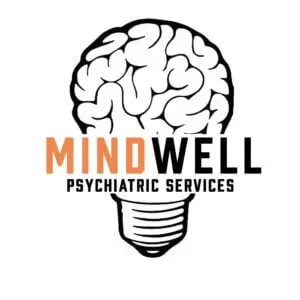What is insanity? Many people think it means doing the same thing over and over and expecting different results. But in reality, it’s much more complex. Insanity is often seen as a mental disorder, a condition that affects how a person thinks, feels, and behaves. This term is not just used in hospitals or clinics; it has a strong legal meaning too. For instance, in court, the insanity defense can be used to explain why someone wasn’t aware of their actions due to a mental disorder.
Mindwell Psychiatric Services provides a deeper understanding of these concepts. By explaining the various definitions of insanity and their applications, he helps us see how these definitions influence both medical practice and legal judgments. So, when we talk about insanity, we’re discussing something that has significant implications across several aspects of society. This topic isn’t just medical; it’s also deeply rooted in our legal systems and affects how we view responsibility and consciousness.
Historical Perspectives on Insanity
Ancient Views on Insanity
Long ago, people did not understand mental illness as we do today. In ancient times, many believed that gods touched those who showed signs of insanity or cursed them with evil spirits. This belief made life very hard for those suffering. For instance, people in ancient Egypt and Greece used treatments that mixed both spiritual rituals and early medical practices, aiming to heal the mind and spirit together.
Medieval Understandings of Insanity
As time went on, during the medieval period, people shifted their perspective slightly. They often saw mental illness as a mark of witchcraft or demonic possession, leading to harsh treatments for the afflicted. However, some places, like the early asylums in the Middle East and Europe, provided more compassionate care, focusing on confinement rather than punishment. These places aimed to protect society and the individuals, even though their understanding of mental illness was still primitive.
Modern Perspectives on Insanity
Today, our understanding of what is insanity has transformed significantly. The term now often refers to severe mental illness with specific criteria in medical and legal fields. The insanity defense is a legal concept used when a person did not understand the nature of their actions due to a mental condition. This defense shows how deeply our society now considers mental health in judging actions.
Clinical Definition of Insanity
When we ask, What is insanity? In a medical setting, we’re talking about a serious mental health condition. It’s not just strange behavior; it’s when someone cannot understand reality due to mental issues. This can include conditions like bipolar disorder, where a person’s mood changes extremely from very happy to very sad.
Medical vs. Legal Definitions
The clinical definition is quite different from the legal one. Medically, insanity is seen as a condition where treatment and understanding are needed. Psychiatrist in Las Vegas work to diagnose these conditions accurately using science and medicine. They look at how the brain is working and talk to the person to understand their thoughts and feelings.
In law, insanity is used differently. The legal definition focuses on whether someone understood the nature of their actions when they committed a crime. The insanity defense is a way for courts to consider mental health in their decisions. It’s not about excusing the crime but understanding that the person’s mental condition may have affected their actions.
Breaking Down the Definitions
So, in simpler terms, the clinical definition deals with diagnosing and treating the condition of being mentally ill. It uses specific criteria to identify different mental health issues, such as schizophrenia or depression, which can be part of what leads to insanity.
On the other hand, the legal definition is about accountability and understanding whether someone was in control of their actions. Both definitions aim to deal with the effects of mental disorders but in very different contexts.
The Impact of Insanity on Society
When we talk about what is insanity? We often think about how it affects not just individuals but also the society they live in. Society has various ways of looking at people who are mentally ill. Sometimes, these views can be harsh. People who are labeled as insane might be treated differently or unfairly because others do not understand their condition. This can make their lives very hard.
Effects on Individuals
Seeing someone as different or mentally deranged can create what we call social stigma. This leads to people possibly avoiding or fearing those diagnosed with mental health conditions like bipolar disorder. They might not get the same chances for jobs or relationships. This isolation can make their mental health even worse. It’s a tough cycle that is hard to break.
The Role of Understanding
Therefore, understanding the nature of mental health is crucial. By educating ourselves and others, we can start to see changes in how society views mental health issues. For instance, at Mindwell Psychiatric Services, works to provide clear information about mental health. This helps reduce fear and misunderstanding.
Diagnosing Insanity: Processes and Challenges
When we try to understand what is insanity? In a medical sense, it’s about figuring out if someone’s mental state fits certain medical criteria. Doctors look at how a person thinks, feels, and acts to see if they might be suffering from a severe mental condition. This process is crucial because getting the right diagnosis means getting the right help.
The Role of Mindwell Psychiatric Services
At Mindwell Psychiatric Services, Michael Kuron, MSN, APRN, PMHNP takes special care to make sure diagnoses are accurate. He listens carefully to his patients, reviews their history, and uses established medical guidelines to understand their condition. This careful psychiatric evaluation and diagnosis helps in identifying whether someone is truly experiencing what we call insanity, or something else like stress or a temporary breakdown.
Challenges in Diagnosis
Diagnosing mental health issues, especially conditions considered as insanity, is not easy. Sometimes, symptoms can be confusing, and it can be hard to tell one mental illness from another. For instance, being deeply sad for a long time might seem like depression, but if it comes with losing touch with reality, it could be something more serious. Also, each person is different, and what seems like a sign of being mentally deranged in one might not be the same in another.
Treatment Options and Management
When dealing with what is called insanity, or severe mental health issues, there are several ways to help. The main methods include therapy, medication prescription and management. Therapy involves talking to a professional like a psychiatrist or psychologist who helps understand and manage feelings and thoughts. Medication, on the other hand, can help balance the chemicals in the brain that affect how we feel and think.
Role of Mindwell Psychiatric Services
At Mindwell Psychiatric Services, focuses on choosing the right treatment for each person. Every case of mental health is unique, so what works for one person might not work for another. He takes a careful and personalized approach, aiming to find the best combination of therapy and medication for each patient.
Managing Mental Health
Managing mental health, especially conditions considered insanity, is about more than just treatment. It also involves regular check-ups and adjustments to treatment as needed. For instance, a medication that works at first might become less effective over time, or a therapy approach might need to change as the person’s situation changes.
Insanity vs. Mental Wellness
When we talk about what is insanity? It often refers to serious mental health conditions where a person can’t think, feel, or behave in what most would consider a normal way. It might include doing the same things over and over, even when it clearly doesn’t work, or acting in ways that are extremely foolish or risky without understanding why.
Comparing with General Mental Health
Insanity is different from more common mental health struggles. While many people might feel sad, stressed, or worried at times, these feelings don’t usually make them lose touch with reality. A person dealing with insanity might have a harder time managing daily life and may need more support and medical attention.
Tips for Maintaining Mental Wellness
So, how can we keep our minds healthy? Here are a few tips:
- Regular Activity: Staying active isn’t just good for the body; it also helps the mind.
- Healthy Eating: What we eat affects how we feel and think.
- Good Sleep: Getting enough sleep is crucial for mental health.
- Social Connections: Talking to friends and family can make a big difference.
- Mindfulness and Relaxation: Techniques like meditation can help manage stress.
In other words, maintaining mental wellness involves caring for our overall well-being and adopting habits that support our mental health. By understanding the difference between common mental health issues and more severe conditions like insanity, we can better manage our health and seek help when needed.
Conclusion
In exploring what is insanity, we’ve seen that it’s more than just repeating the same behavior; it’s a serious condition that affects how a person thinks, feels, and acts. Insanity can make someone act in ways that seem extremely foolish or out of touch with reality. At Mindwell Psychiatric Services, Michael Kuron, MSN, APRN, PMHNP specializes in understanding and treating such complex mental health issues.
In addition, if you or someone you know struggles with these challenges, it’s important to seek professional help. Reach out to Mindwell Psychiatric Services for expert care and support. Therefore, understanding and treatment are the first steps towards improvement.
FAQs
What is insanity?
Insanity describes severe mental health conditions that significantly impact a person’s daily life by impairing their ability to understand what is real and what isn’t.
How do doctors diagnose insanity?
Doctors diagnose insanity by talking to the person, learning about their history, and comparing their symptoms to specific medical guidelines.
What are the main causes of insanity?
The causes can vary widely and include genetic factors, severe stress, or major changes in brain chemistry.
Is insanity the same as mental illness?
Not exactly. All cases of insanity qualify as mental illnesses, but not all mental illnesses are severe enough to qualify as insanity.
Can insanity be treated?
Yes, with the right combination of medication, therapy, and support, many symptoms of insanity can be managed effectively.
How does insanity affect someone's life?
It can disrupt a person’s ability to think clearly, make decisions, and interact with others, often requiring professional care.
What is the legal definition of insanity?
Legally, insanity is defined as a condition where a person is unable to understand the nature of their actions or distinguish right from wrong.
How does Mindwell Psychiatric Services help with insanity?
Mindwell Psychiatric Services, led by Michael Kuron, MSN, APRN, PMHNP provides detailed evaluations, personalized treatment plans, and ongoing support to manage conditions effectively.
Can someone with insanity lead a normal life?
With appropriate treatment and support, many individuals can manage their conditions and lead fulfilling lives.
Where can I find more information about insanity?
For more detailed information, you can consult resources like Oxford University Press or speak to a specialist at Mindwell Psychiatric Services for personalized guidance.





